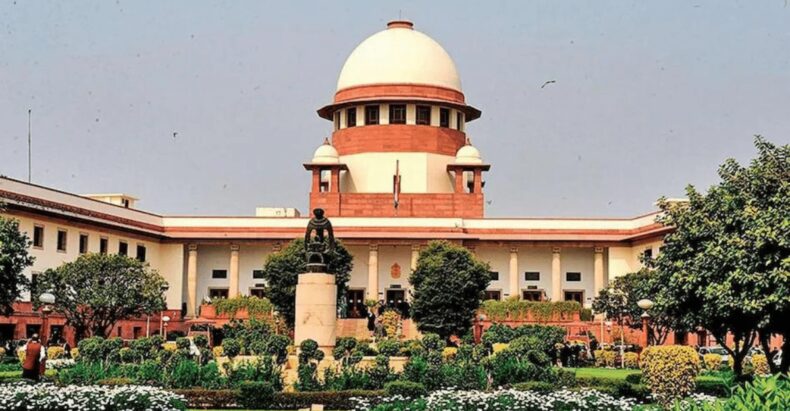The Supreme Court declined the center’s petition seeking more compensation from Union Carbide for the 1984 Bhopal Gas Tragedy. The gas leak that killed over 3,000 people is counted as the world’s worst industrial disaster.

1984 Bhopal Tragedy
About 42 tonnes of methyl isocyanate leaked from the Union Carbide India Limited (UCIL) plant in Bhopal, Madhya Pradesh on 2 December 1984. During investigations, substandard operating and safety procedures were revealed as the reason behind the catastrophe.
The Union government of India filed the pleas in SC in the year 2010 asking UCC, currently owned by Dow Inc, for Rs 7,844 crore as additional compensation.
The survivors of the Bhopal gas tragedy have long been striving for adequate compensation and proper medical treatment for ailments caused by the poisonous gas leak.
The top court dismissed the CBI’s curative plea in 2011, saying that no satisfactory explanation had been given to file such curative petitions after about 14 years after the 1996 judgment.
The five-judge Constitution headed by Justice Sanjay Kishan Kaul bench said the settlement can be set aside only on the ground of fraud and that the center had not argued on this point.
The bench also included Justice Sanjiv Khanna, Abhay S Oka, Vikram Nath, and JK Maheshwar. It reserved its verdict on the Centre’s curative plea on January 12.

The UCC, currently owned by Dow Chemicals, paid a compensation of Rs USD 470 million in 1989 post the toxic methyl isocyanate gas leak from the Union Carbide factory on the intervening night of December 2 and 3,1984. Over 3,000 people lost their lives in the Bhopal Tragedy and 1.02 lakh more were affected.
At the time of the hearing, the successor firms of the Union Carbide Corporation argued in the apex court that the depreciation of the rupee since 1989, when a settlement was reached between the company and the Centre, cannot be used as a ground to seek a top-up of compensation for the victims now.
Senior advocate Harish Salve, appearing for one of the firms, told the top court that the government of India never suggested at the time of the settlement that it was inadequate.
The agency approached the Supreme Court after facing public outcry over a Bhopal court order that sentenced Union Carbide executives to two years imprisonment, including former Union Carbide India chairman Keshub Mahindra.
One of the victims alleged that they were denied their day in court because of the bench’s biases. She further added that the counsel for Union Carbide was given enough time to speak, but the lawyer for the survivors’ organizations was heard only for 45 minutes.













